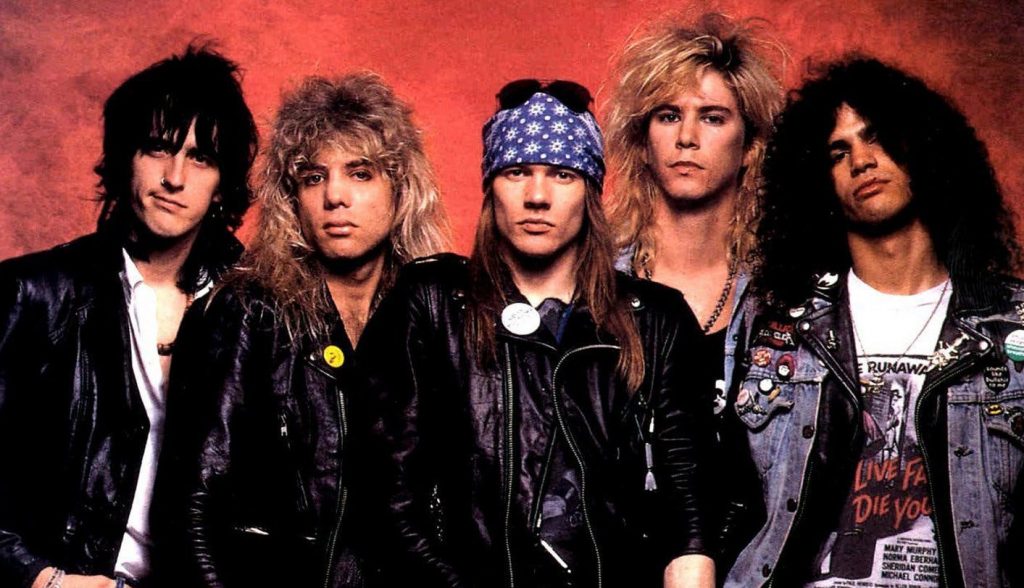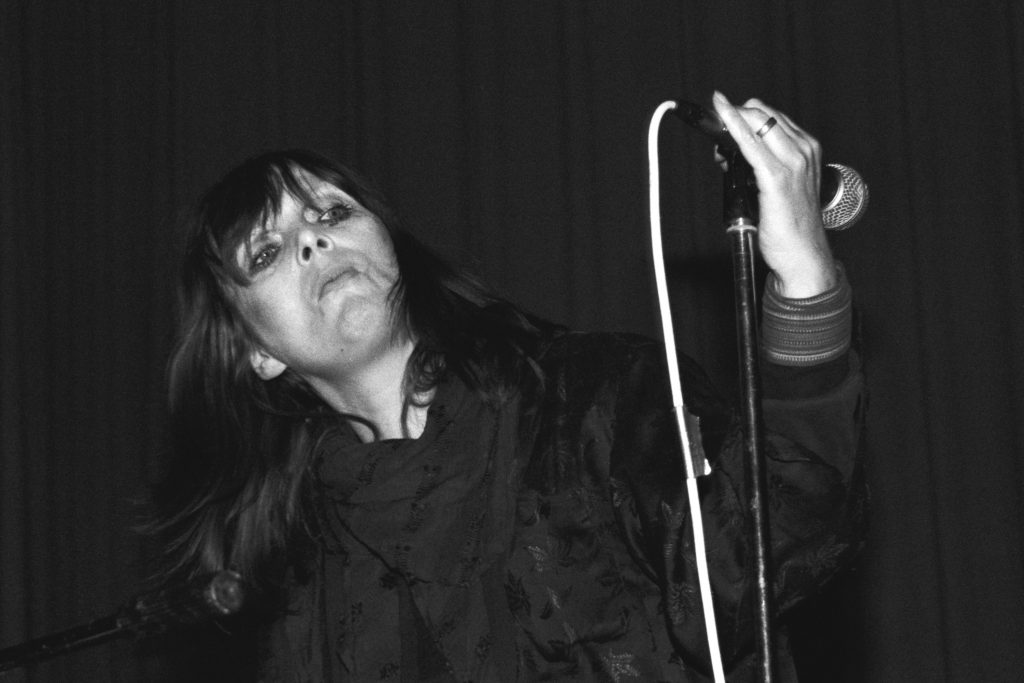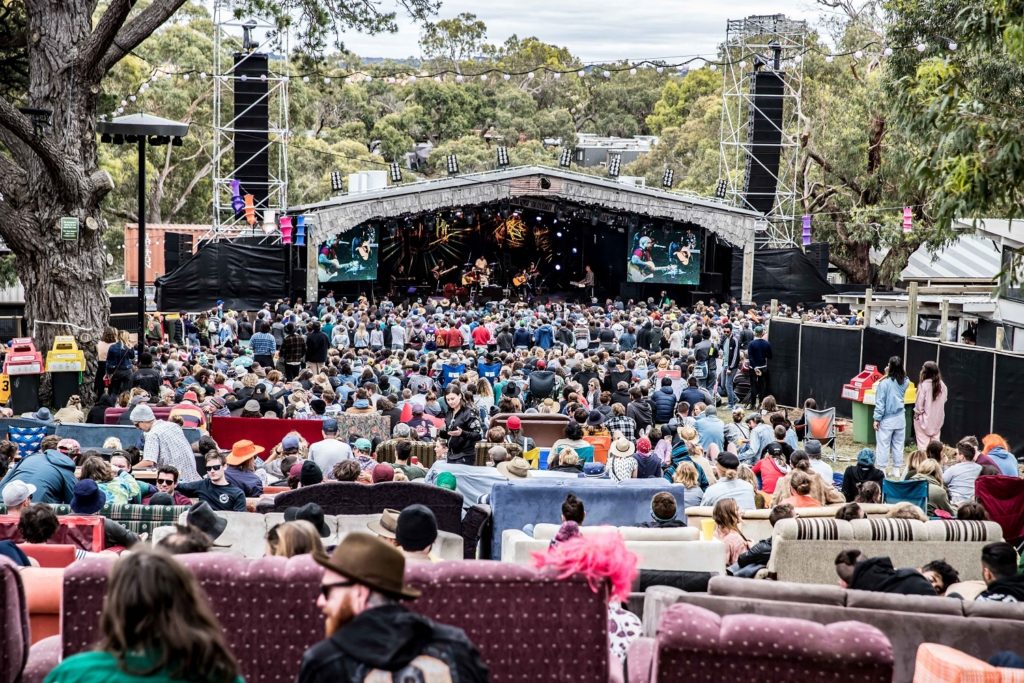“It was supposed to be this pop-rock sort of album, with harmonies,” Walker recalls. “We did this recording of about ten or 12 songs, and it was really good. But while we were doing it, we realised that we all really liked Teenage Fanclub.” While the first suite of songs reflected a more “Tom Petty, early ‘80s Saints, ‘70s pop-rock sort of feel”, the songs Walker wrote subsequently indulged the bandmembers’ common love of Teenage Fanclub. “At that point we realised we could do this more as a band sort of thing, rather than as the solo project that it started out as,” Walker says. “It just came out so easy, and the recording was so good.”
With the in-principle decision made that Walker’s solo project had morphed into something different, the quartet headed back down to Inverloch to record the next batch of songs. “Liz had put a record out, I’d put a compilation out, but it was 12 months since we’d recorded that first lot of songs,” Walker says. With the shack where the first lot of songs had been recorded on the verge of being knocked down and renovated, there wasn’t a lot of time to complete the follow-up recording session. “I rang up and asked if we could nick down there again, just because it was so much fun recording the first time,” Walker says, “and luckily they hadn’t knocked it down, so we were able to record there again.”
While the recording session had been an ad hoc affair, this time the soon to be constructed band had a clearer sense of purpose. “The second session was a lot more organised, and probably had a lot more of a vision – we knew the songs before we went down, as opposed to the first one when we just played whatever Van wanted us to play,” Stringer says. “The first time was just an experiment,” Walker adds. “At that first stage we still hadn’t made the decision that I was definitely going to put out an album – it was just an excuse to go and record and see what happened. And then we ourselves thinking that this would be good to do more than one recording – it’d be a good thing to do as a band. So the second session was more ‘this is the type of band we’d like it to be’.”
Having completed the second recording session, the newly christened Livingstone Daisies began performing the first of the “dozen or so” gigs it’s gone onto play. “We had a residency at The Retreat last year, and the odd gig here and there,” Stringer says. With each of the members committed to other projects, Livingstone Daisies is a band that requires careful logistical preparation. “It was originally supposed to be a band that would record every now and again, and released records every now and again,” Walker says. “Because this is the first record, we don’t know exactly how it’s going to work,” Stringer adds. “We’ve already got a bit of interest out of it, so it may take on a bit of a life of its own, so we’ll just have to suck it and see. But it’s good that it’s happening like this.”
When Scott Thurling from Popboomerang Records first heard Livingstone Daisies he was bowled over, offering to release the band’s first record on his label. “I don’t think he realised that we were into pop music,” Walker says. “But when I sent him this record, he was really excited and said he wanted to put it out, which was great, and just kept up the momentum.” Thurling’s experience with the marketing side of the business proved invaluable. “We’re all focused on different things, but Scott’s been able to bring it all together,” Stringer says. “We’re not marketing geniuses, but he knows how to release albums. And Scott’s not a musician, which is good, because he brings something else to the table.”
Livingstone Daisies’ pairing with Popboomerang has allowed them to release the album, Don’t Know What Happiness Is, on vinyl – the first vinyl outing for both parties. “I’ve never released an album on vinyl before,” Walker says. “So that was the other idea about the band – to put it out on vinyl.” “I think that’s a real renaissance that’s happened recently,” Stringer says. “It’s so good that people are into vinyl again. Until a few years ago that just didn’t seem possible.”
With such an impressive debut album, the problem remains: what to do to counter the so-called ‘Difficult Second Album Syndrome’? Livingstone Daisies might not have spent a lot of time dwelling on the matter, but Walker and Stringer have the perfect answer. “I want to put the first session out, because I fucking love it,” Walker says. “So we’re going to get over the ‘Difficult Second Album Syndrome’ by recording it first,” he laughs.
BY PATRICK EMERY







